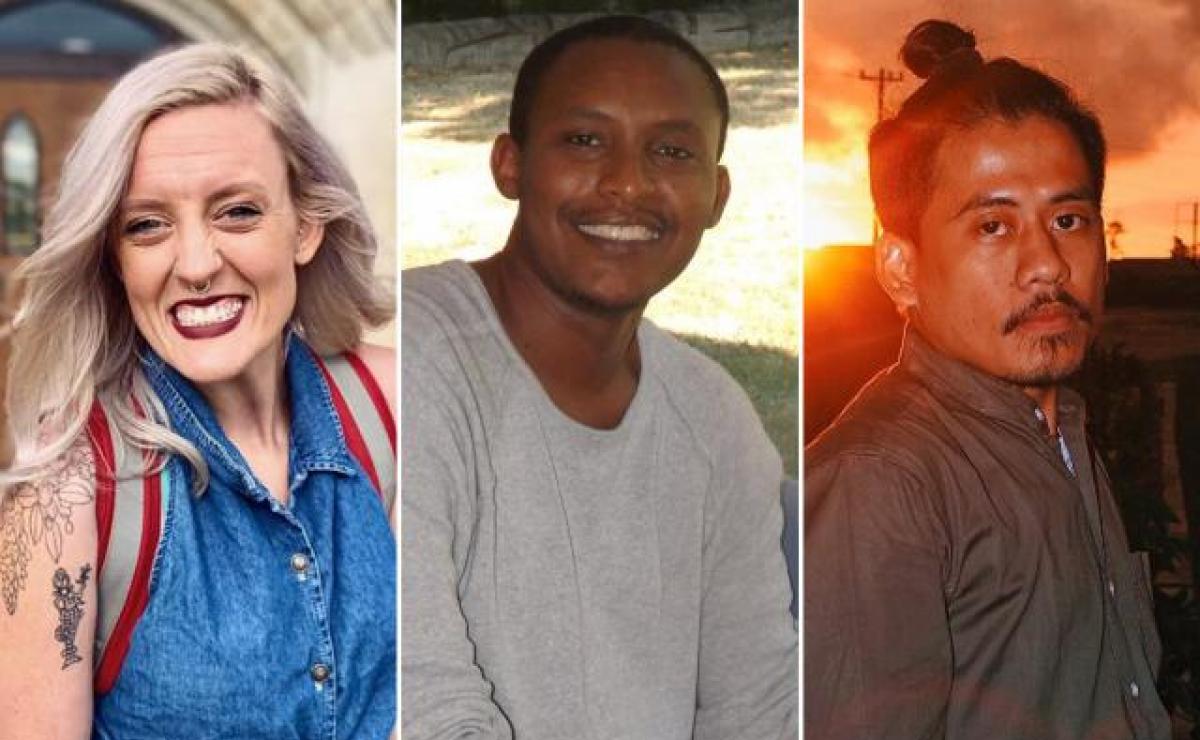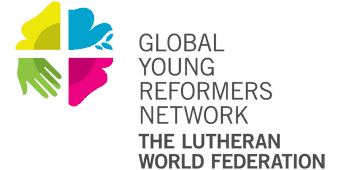COVID-19: LWF Young Reformers’ Space

Young adults share spiritual, mental, economic solutions
(LWI) - In an online conversation, young Lutherans from around the world, discussed spiritual wellbeing, mental health and financial entrepreneurship within the church and in their communities during the Coronavirus disease (COVID-19) pandemic.
The Lutheran World Federation (LWF) Global Young Reformers Network 2.0 is a program of the LWF that engages the next generation of youth from the LWF member churches who are eager to contribute to the life and reformation of church and society.
The Young Reformers discuss themes based on three LWF Youth priorities: Revival of churches, Equity and Education and also two sub-priorities: Climate Justice and Youth participation as reflected in the youth message to the LWF Twelfth Assembly.
Reports from international health organizations and local medical officials clearly indicate that all generations are dealing with challenges such as unemployment, mental fatigue and isolation due to quarantine and social distancing. However, young adults around the globe are experiencing these stressors – unemployment, isolation and lack of access to spiritual and mental treatment – in distinct ways.
The Global Young Reformers met to share practices of self-care and to bring awareness to the relevant circumstances young people face during these exceptional times.
“I have witnessed the openness of the youth to learn from the experienced generations and the potential to create new ways of working together, courage to change practices and act boldly for a transformational change,” said Pranita Biswasi, LWF Program Executive for Youth. Biswasi said that even in these uncertain times, she has seen young people find alternative ways of worship, accompanying each other and supporting each other with ideas for entrepreneurship.
“It is time to celebrate the younger generation who are capable of bringing renewed spirit into our churches and societies.”
“Maintaining spiritual health in times of uncertainty”
Tsegahun Assefa Adugna, Youth Pastor of the Ethiopian Evangelical Church Mekane Yesus (EECMY) believes giving young people solid principles to follow during the pandemic will maintain and enhance spiritual health. When Bible studies and lessons shifted to online platforms, Adugna said, “This is an opportunity to see the face of the Lord and wrestle with biblical teachings.”
Adugna said there are more biblical lessons online than ever before in the church and “this is a good thing for spiritual growth.”
Through Adugna’s online groups he counsels young adults, his peers, to pray and to meditate on the Word. He says the uncertainty of the pandemic is leading the youth groups to ask theological questions like the purpose of suffering.
The youth are referencing Martin Luther’s Small Catechism to wrestle with questions and to strengthen their faith. Adugna says a favorite passage among the young adults is Psalm 25:4-5,
“Make me know Your ways, O Lord;
Teach me Your paths.
Lead me in Your truth and teach me,
For You are the God of my salvation;
For You I wait all the day.”
“Impact of COVID on mental health”
Savanna Sullivan, Program Director for Evangelical Lutheran Church in America (ELCA) Young Adult Ministries responded to COVID-19 by developing an online mental health outreach called “Abide” after a survey found that nearly “half of adults in the United States said their mental health was significantly negatively affected.”
The ELCA said young adults reported isolation, depression, severe stress, anxiety and limited access to mental treatment as number one concerns among the cohort.
In two months, at the height of COVID-19 in the US, “Abide” which is run by peers, has 80 groups around the country with over 700 participants, and 100 partner participants and plans to continue the groups as government COVID-19 restrictions loosen.
Offering 45 minutes of theological reflections and a place to check in, “Abide” gives young people a place to connect with each other and a place to “feel less lonely.”
Sullivan added that young people of the ELCA are strong advocates for mental health care and that “it is faithful to seek help for mental health issues.”
“Economic security of young people”
Tumpak Hutabarat, member of the Protestant Christian Church in Indonesia (HKPB), was busy cultivating public space for young adults to market creative industries when COVID-19 restrictions closed these financial gatherings.
Before COVID-19, Hutabarat, successfully established “1000 Tents” a quarterly outdoor event that brought together over 30,000 young adults from around Indonesia to share their art and creative products. It also gave the young adults an assembly to discuss current social issues, share exhibitions and present workshops.
Hutabarat immediately saw the economic impact the shutdown had on the youth who were a big part of these events. Some of the young adults were forced to drop their creative industries and opt for “essential” food sales.
Recognizing the loss of innovation as well as the economic deficit, Hutabarat organized and manages the “Collective Entrepreneur Initiative” which provides an online “liaison for creative communities to work, showcase exhibitions and sell products.”
The Young Reformers’ Space is scheduled for the last Friday of the month. The next will be June 26.
